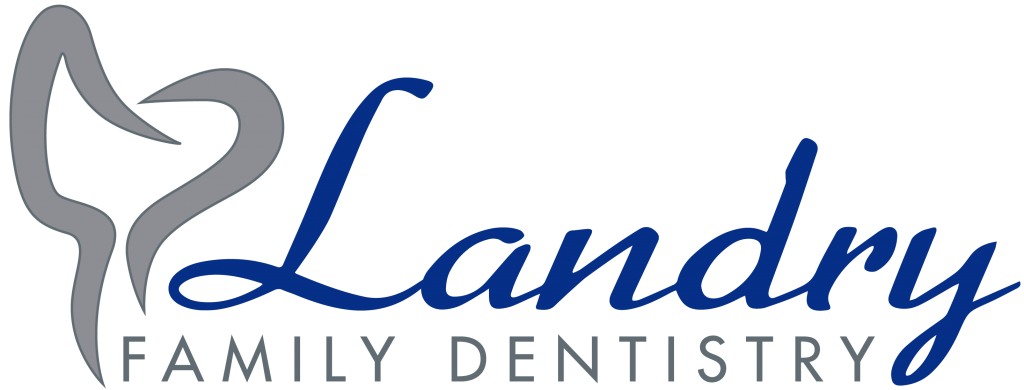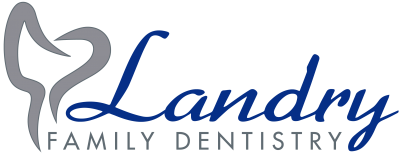Healing Guideline Instructions
We recommend our patients follow optimal healing guidelines after dental procedures to ensure proper healing and minimize complications. Below are helpful suggestions to speed healing and minimize temporary discomfort. After your dental procedure, Dr. Landry and our team will give you personal instructions on how to allow your body to heal to your maximum potential.
If you were comfortably numb during your dental procedure, please wait until the numb feeling returns to normal before eating or drinking. Eating or drinking before the profound numbing sensation wears off may result in soft tissue damage due to accidental cheek, lip, or tongue biting while experiencing the numbing effect of local anesthesia.
Crowns, Veneers, and Bridges
We provide our patients with state-of-the art technology of CAD/CAM designed and milled custom crowns that protect the tooth with the finished crown the same day of treatment in most cases. In certain instances, some crowns, porcelain veneers, and bridges may have an intermediary step utilizing a temporary prior to customizing the finished esthetic dental restoration. Temporaries are not as sturdy as the finished version, so please be careful when cleaning and eating. Please brush the area gently and avoid pulling up on the restoration when flossing, as this could dislodge the crown, veneer, or bridge. Instead, we recommend gently sliding the floss out the side towards the cheek or tongue rather than popping back up through the contacts between the adjacent teeth while either wearing a temporary crown or with any finished crowns, veneers, or bridges. We recommend avoiding sticky or chewy foods while wearing the temporary before the finished crown, veneers, or bridge is placed.
There may be some sensitivity and irritation after the temporary or finished crown, veneer, or bridge is placed. This may be normal and will subside after the soft tissue heals. A warm salt water rinse is recommended, and we may recommend over-the-counter pain medication, such as Advil or Tylenol if discomfort persists. Please notify our team at Landry Family Dentistry if this discomfort or pain worsens or persists for more than a few days. We prefer to know so we can help you heal as comfortably and efficiently as possible.
When the finished crown, veneer, or bridge is placed, it may feel a little awkward for a few days. Your mouth needs to adjust to the new tooth, and it should feel like one of your natural teeth in less than a week. If your bite feels abnormal in any way, please let our dental team know. Home care for your crown, veneer, or bridge is just like caring for your natural teeth. Please brush and floss regularly, and continue your routine dental visits to maintain optimal oral health and longevity for your natural God-given teeth as well as any dental restorations.
White Fillings (Composite Restorations, Esthetic Bonding)
After the anesthesia wears off, your teeth may be sensitive. Please avoid hot and cold food or drinks for the next few days. After that initial period, your treated teeth will feel as good as new. Continue your normal hygiene plan at home and with routine dental visits to ensure that your white fillings last for a long time.
Scaling and Root Planing, Periodontal Disease Treatment
After the scaling and root planing periodontal therapy procedure to treat periodontal disease, your gingival tissue may be slightly sore and irritated for a few days during the healing process. Please rinse your mouth with warm salt water (1 tsp salt/8 oz water) 2-3 times a day. Dr. Landry and our registered dental hygienists may also recommend a prescription-strength mouth rinse to use during your healing phase. Rinses will relieve discomfort and cleanse the treated gum areas. Brushing and flossing should be continued right after the procedure, but you should brush in a gentle massaging motion to promote healing rather than a vigorous scrubbing motion that may irritate the healing area. If you experience any swelling or stiffness in the area you can place a cold compress on the area and take over-the-counter pain relieving medicine, such as Advil or Tylenol. Avoid any hard or chewy foods for 2-3 days after the surgery to ensure the area heals correctly. If you continue to experience pain or swelling after a few days contact Dr. Landry and our hygiene team. The cleaner the area is kept during your home care, the more effective and efficient your body’s healing will occur.
Extractions, Bone Grafting/Membrane, Implants
After the oral surgery procedure, we recommend resting and reducing your physical exertions for the rest of the day. The healing site may ooze and bleed for a little while after the surgery. Gauze may be applied at the completion of the procedure, which may need changed if becomes soaked. If bleeding continues for longer than 24 hours you should call Dr. Landry and our dental team. However, in the extremely rare situation where advanced bleeding or squirting blood from the surgery site is experienced, call EMS or go to the nearest emergency room for treatment. Rest when you return home, but do not lie flat, as this could prolong bleeding. Prop your head up on a pillow or relax in a recliner chair. Dr. Landry recommends, and studies show that over-the-counter pain medication is both superior to and safer than prescription pain medication for dental procedures. We recommend 600-800mg Advil and 1,000mg Tylenol, either taken together every 6 hours or alternating one or the other every 3 hours. Additionally, icing the outside area 20 minutes on and 20 minutes off is highly suggested to reduce the possibility of swelling and bruising, and to help with discomfort relief over the course of the first 24-48 hours.
While healing, we recommend soft foods for a few days. Some recommended foods are:
- Gelatin
- Pudding
- Yogurt
- Mashed Potatoes
- Scrambled Eggs
- Ice Cream
- Thin Soups
- …and other food you can eat comfortably without chewing.
Following extractions with or without bone grafting and membrane placement, it is very important for the next 72 hours to please avoid the following:
1) Avoid smoking for at least 72 hours or longer. Smoking increases the chance of a painful dry socket with the suction created with smoking and nicotine decreased healing abilities. If you have prolonged pain, bleeding, irritation, or do not feel that the site is healing properly, please inform Dr. Landry and our dental team.
2) Avoid forcibly swishing or spitting while rinsing the next day following the procedure. This action may dislodge the blood clot that promotes healing in the surgery site, and could increase the chance of a dry socket. Instead, gently roll your head side to side and front to back to gently circulate the rinsing liquid around your mouth, then lean over the sink and let the liquid gently flow out of your mouth while avoiding forcibly spitting.
3) Avoid using a straw. The motion and pressure of using a straw while drinking can dislodge the healthy blood clot that forms in the socket, which may result in a dry socket formation. It may also loosen sutures if any were used following the procedure.

